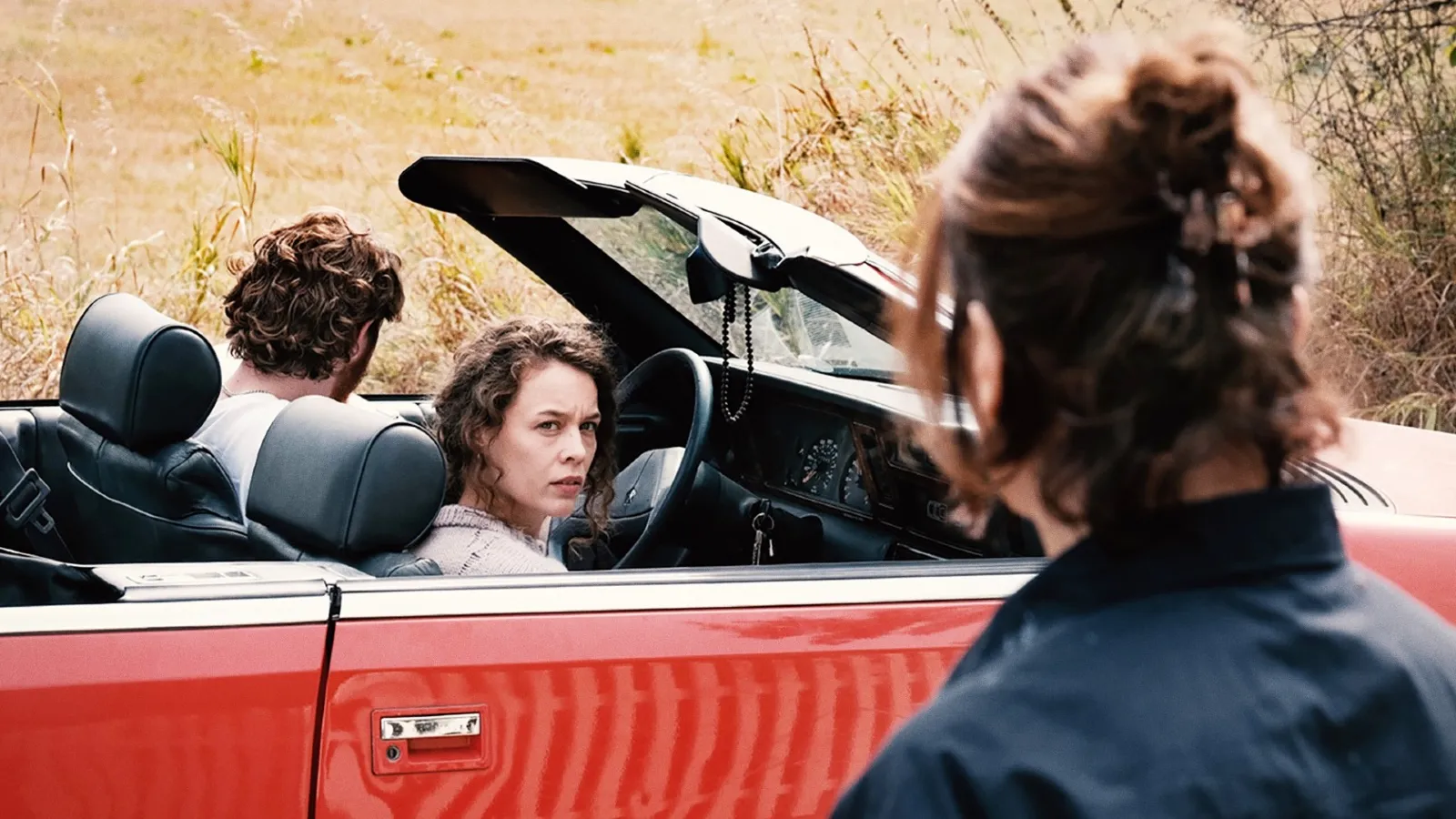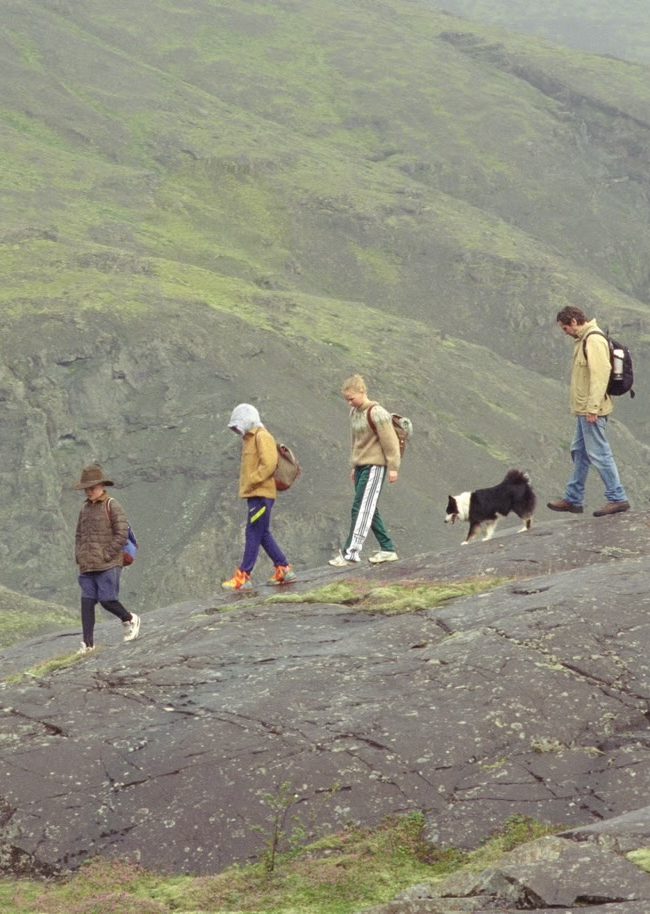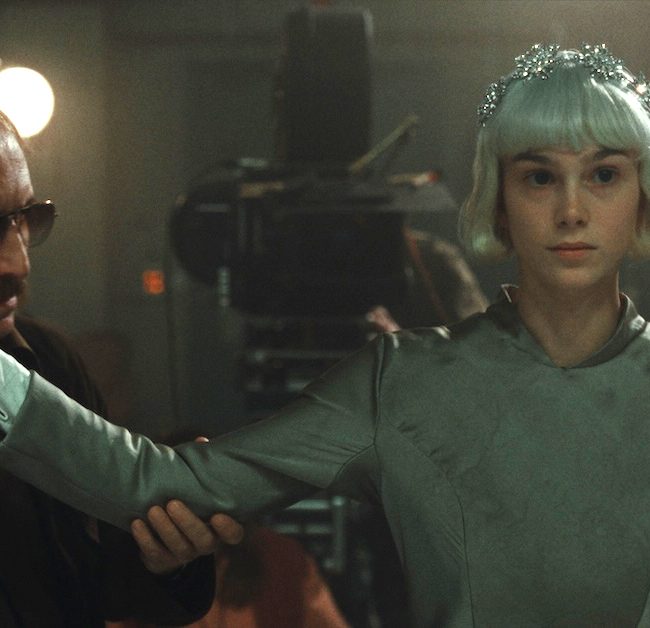MIROIRS NO. 3

(The 63rd New York Film Festival (NYFF) runs September 26-October 13 via Film at Lincoln Center. Check out Matt Delman’s Miroirs No. 3. movie review, fresh from the fest! Seen it? Join the conversation with HtN on our Letterboxd Page.)
The filmmaker behind my favorite film of 2023 Afire, Christian Petzold, is a director in fine control of his craft. He reteams with his muse, the inimitable Paula Beer, to play out a fantasy in the countryside in Miroirs No. 3. Beer’s character Laura studies in Berlin, but when her short term boyfriend dies in a car crash and she comes out unscathed, she takes refuge with an older woman who lives alone in a house nearby. The woman, Betty (Barbara Aur), has her own family secrets that upend an idyllic relationship, but not before many moments of beauty and intrigue. Petzold’s fascination with and clear love of food is at the center of the story, and how it’s fondly provided or savored by the characters. If the story is ultimately a bit predictable, it doesn’t diminish the film’s delights, of which there are many sprinkled throughout. A master of subtlety, but not without ambition, Petzold crafts another delectable drama that prods at the human condition.
Something is amiss at Betty’s house. For one, the dishwasher is broken. Separated from her husband Richard (Matthias Brandt) who lives and works with their son Max (Enno Trebs), Betty has fallen into a spell of helplessness. She’s jolted out of this rut by helping another, when Laura falls out of the sky–out of a convertible to be exact–and into her lap. Laura sleeps over in someone’s old room, perhaps a daughter? In the morning, Betty leaves 2 thermos of coffee and tea by her bedside, offers her fresh clothes and a bicycle. Laura makes a plan to cook for Richard and Max, who look at her as if they’d seen a ghost. She makes their favorite food, and the dishwasher gets fixed–for the moment. It’s clear there is some discomfort, and the audience shares in Laura’s unknowing. The dramatic irony builds, perhaps overly so, as it becomes obvious to everyone but Laura what is going on.
The shy and brooding Max has some similarities to Leon from Afire, but he is more capable. He’s a bit suspicious of Laura at first, but they form their own bond which is never romantic. Between riding bicycles and eating plum cake, they share knowing glances as if they understand each other on a deeper level. At the same time, Laura’s presence catalyzes a healing between husband and wife, as Betty and Richard spend more time together offscreen, ‘down by the lake’, which may be one of Petzold’s sly euphemisms. Betty and Laura paint a white picket fence, an activity they cherish together, until gossipy neighbors stroll by and ruin the mood. The film culminates in a piano recital, and the music is quite moving for both the audience and the characters.
It’s unclear if the characters in Miroirs No. 3 will stay in touch. The truth always finds a way to the surface and when a boundary is crossed the house of cards falls apart. Though the film is set in Germany and in the German language, the title is a French word meaning ‘mirrors’. I guess ‘Spiegel No. 3’ didn’t have the same ring. And where are mirrors 1 & 2? Petzold likes to leave us with little riddles and the title is no exception. Is Laura a mirror for the family to see into their own souls? Cinematographer Hans Fromm does not rely on reflective shots, favoring medium shots of people and faces. If the eyes are the window to the soul, it’s natural to keep the focus there. While creating Miroirs No. 3, Petzold may be working on a smaller scale, but he still makes a meal out of it.
– Matthew Delman (@ItsTheRealDel)
2025 NYFF; Christian Petzold; Miroirs No. 3 movie review











